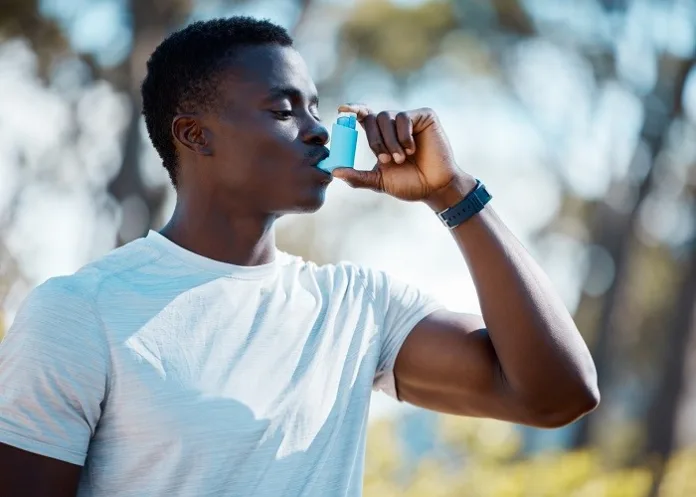A study tracking 360 084 participants for eight years found that those with asthma had increased risks of five types of cancer, but people using inhaled steroids had more risk for just two types of cancer compared with higher risk for nine types among the non-users. This suggested a protective effect of inhaled steroid use on cancer, the scientists wrote.
Participants were aged 18 to 65, and included 90 021 people with asthma. During the eight years, the asthmatics had a greater risk of lung cancer, blood cancer, melanoma, kidney cancer and ovarian cancer from the 13 types of cancer the researchers analysed.
About a third of the study participants with asthma used inhaled steroids to control and prevent their attacks, and higher cancer risk was detected among both users and nonusers. But those with asthma who used inhaled steroids had elevated risk for just lung and melanoma cancer, compared with higher risk for nine cancer types among non-users.
In the University of Florida-led study, as a possible link between asthma and cancer the team pointed to the chronic long-lasting inflammation associated with asthma, noting that earlier research found it was conducive to cancer development and progression.
Nearly 26m people in the United States have asthma, according to the Asthma and Allergy Foundation of America, including nearly 5m children and teens under age 18. About 2m Americans will be diagnosed with cancer in 2023, according to the National Cancer Institute.
Study details
Cancer incidence after asthma diagnosis: Evidence from a large clinical research network in the United States
Yi Guo, Jiang Bian, Zhaoyi Chen, Jennifer Fishe, Dongyu Zhang, Dejana Braithwaite, Thomas George, Elizabeth Shenkman, Jonathan Licht.
Published in Cancer Medicine on 31 March 2023-05-04
Abstract
Background
Prior studies on the association between asthma and cancer show inconsistent results. This study aimed to generate additional evidence on the association between asthma and cancer, both overall, and by cancer type, in the United States.
Method
We conducted a retrospective cohort study using 2012–2020 electronic health records and claims data in the OneFlorida+ clinical research network. Our study population included a cohort of adult patients with asthma (n = 90,021) and a matching cohort of adult patients without asthma (n = 270,063). We built Cox proportional hazards models to examine the association between asthma diagnosis and subsequent cancer risk.
Results
Our results showed that asthma patients were more likely to develop cancer compared to patients without asthma in multivariable analysis (hazard ratio [HR] = 1.36, 99% confidence interval [CI] = 1.29–1.44). Elevated cancer risk was observed in asthma patients without (HR = 1.60; 99% CI: 1.50–1.71) or with (HR = 1.11; 99% CI: 1.03–1.21) inhaled steroid use. However, in analyses of specific cancer types, cancer risk was elevated for nine of 13 cancers in asthma patients without inhaled steroid use but only for two of 13 cancers in asthma patients with inhaled steroid use, suggesting a protective effect of inhaled steroid use on cancer.
Conclusion
This is the first study to report a positive association between asthma and overall cancer risk in the US population. More in-depth studies using real-word data are needed to further explore the causal mechanisms of asthma on cancer risk.
Cancer Medicine article – Cancer incidence after asthma diagnosis: Evidence from a large clinical research network in the United States (Open access)
See more from MedicalBrief archives:
Persistent asthma linked to increased heart disease risk – US study
Inhaled steroids promote secretions which block treatment in severe asthma patients – US study
Many asthma patients exposed to high oral corticosteroids doses

